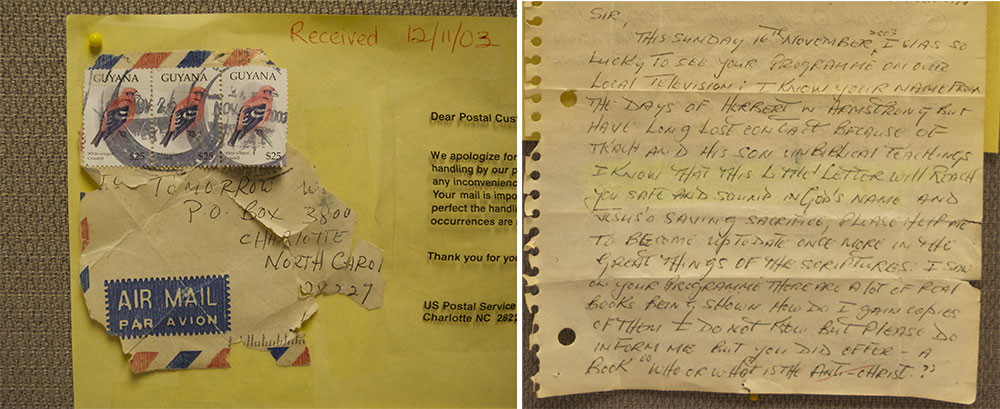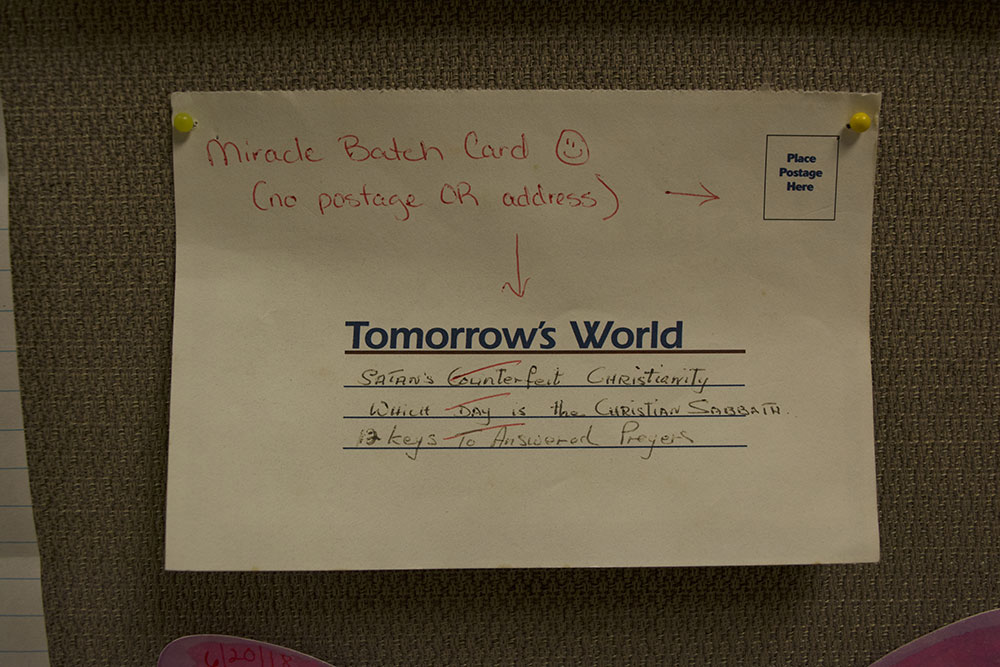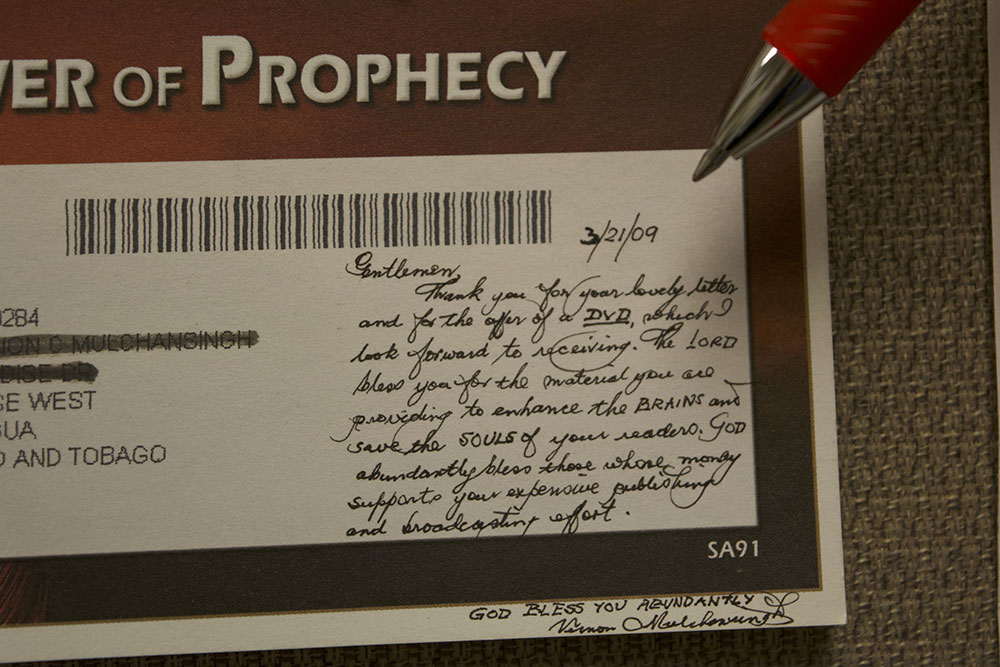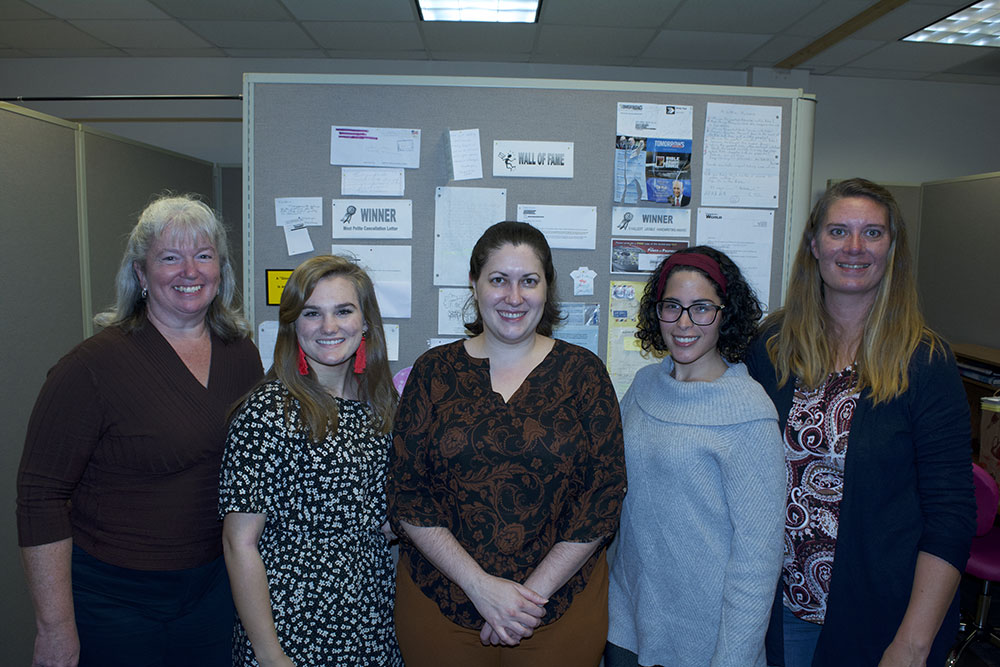Change happens fast in our modern world, and we all know how hard it can be to stay up to date. Thankfully, the Living Church of God stays updated as a result of the diligent efforts of its Records & Information Services (RIS) Department. Currently staffed by Mrs. Lori Lyons, Ms. Ginger Baugh, Mrs. Laura Denny, Mrs. Jen Friddle, Ms. Meredith Hodges, and Ms. Claudia Zambrano, and overseen by Database Architect Mr. Josh Penman, Headquarters’ RIS team carefully updates the records of members, prospective members, subscribers, and much more.
We at the Living Church News recently interviewed Mrs. Lori Lyons, RIS employee for the past 19 years, to find out just how this small but essential department works.
How and why does RIS help the Church stay up to date in its records?
Lori L.: We update the Church Survey—so, when people get baptized, we have a record of that. When Church youth turn 18, we update the database to include them as prospective members, which means they can get their own Living Church News and that kind of thing. When marriages start and when babies are born, we update the database with that information. It’s always exciting when people get married or have a baby—we in RIS kind of race each other to see who’s going to update the database!
What that does is allow Church Administration to do queries on the database and find out how many teens we have in the Church, how many we’re going to have in five years, how many senior citizens we have, how many we’re going to have—everything like that. Information used to plan locations for the Tomorrow’s World Presentations comes from the database, too.
We also work with the ministry when someone contacts us and wants to attend services. We send their file from the database to the minister closest to them, so that the minister knows what literature they’ve received. It gives the minister a little bit of a heads-up, as far as how long this person has been in contact with Tomorrow’s World. We also put people in contact with ministers when they call and ask, “Is there a congregation in my area?” We’re the ones who give them the nearest minister’s number.
What would you say is the most powerful way RIS supports preaching the Gospel?
Lori L.: Every literature request comes through RIS. Whether it’s from a call center fielding responses to the telecast, requests from the website, phone calls to the office, cards stitched into the booklets—all of that, in one form or another, comes through this department. Thankfully, we use an electronic tool to upload addresses.
It’s always exciting when we hear the announcements regarding how many items the Mail Processing Department has mailed out, because MPD receives information from RIS, and when you’re processing requests from day to day, you don’t really think about the sheer number of those requests. If you’re working on something like requests made in response to the semi-annual letter, you have a huge stack of processed requests on paper at the end of the day, but if you’re electronically uploading, you may process a couple thousand requests but seemingly have nothing to show for it—it just seems like you sat there all day clicking. So, it’s really cool to hear that thousands of items were sent out.
What do you find most challenging about working in RIS?
Lori L.: The first thing that pops into my head is people not using their PINs! The difference in having the PIN and not having a PIN is huge. For example, with a PIN on a Holy Day offering, we can upload it in about three seconds. If we have to look you up by your name or your address, that can take anywhere from 30 seconds to a minute. When you’re multiplying that over hundreds of people, it adds up very quickly. So, that’s the reason why they announce before Holy Day offerings, Please use your green envelope! Or, Use your PIN! Please write your PIN in your Bible—we would really appreciate that!
On a more serious note, a challenge for me is that sometimes, it is personal—when people leave the Church, we have to make them “former members” in the database. And that’s hard, especially when they are people you know, people you’ve spent time with. But we live in the knowledge that God doesn’t lose people. They don’t have to be in our database for Him to know where they are and what they need.
It’s also personal when people call in and yell at you and tell you that you’re a heretic, saying horrible things about the Church’s leadership and stuff—and then the phone is ringing for the next call, and you have to hang up from that terribly nasty person and answer the next call like it’s a brand new day. You’ve got to mentally reboot with every call.
With COVID and the lockdowns and stuff, people call and want to know where their literature is. They’re angry that they haven’t gotten it—but we’ve sent it, and once it leaves the Headquarters building, it’s out of our hands. People have even accused us of lying: You’re telling me that you’re sending it and you’re not. That can be a test.
How have RIS operations grown and changed over the years?
Lori L.: Back in the Worldwide Church of God, they had a much bigger mailing list, of course, but they also had to type everything out—they couldn’t print a label, like we can. So, they had to have a lot more people. Now, we essentially have the same number of people that we had when I got hired 19 years ago, and we’re getting a lot more done. Our supervisor, Mr. Josh Penman, is just absolutely fantastic about creating tools for us that enable us to enter things more quickly.
For example—and this is one way that the Editorial Department has helped us—when I was hired, the semi-annual response cards were blank, so when people sent them in, they wrote their name and their address on that slick paper, so the ink smeared and you were dependent on their handwriting. Sometimes they would use it to request things for others instead, people who weren’t in the database, so you’re searching and searching and searching—only to find, This person’s not in the database; this is a referral. So, it was very labor-intensive. Now, Mr. Josh Penman has created the program for us that enables us to scan each card. And not only is that person’s PIN in the barcode, but also the offer itself. So, we can scan it, and it automatically tells the database to send the new DVD to whoever the person is, so it only takes a second.
Again, that’s not to say it’s completely rote—you spend a lot of time sorting. The count room helps us out; they’re pulling things out and they’re double-checking to make sure that the information on the card is exactly what was on the envelope, that kind of thing. But if we were still doing it the way we were doing it 19 years ago, we would have to have five times as many people, because when the semi-annual responses start coming in, not only are they coming in envelopes, but people are calling: I don’t have a stamp; can I request this over the phone? The number of phone calls jumps—everything kind of spikes, so it gets busy.
We’re always looking for ways to streamline, and that’s one reason why we can do this with so few people—over the years, we’ve looked for ways to make this faster, more efficient. We incorporate new things as we go, so it is ever changing. Editorial has been wonderful with the stitch-ins—every booklet now has two stitch-in cards, which means that every time somebody gets a booklet, they send two cards back. Sometimes they get three booklets, so they send six cards back. Back when we first started using the stitch-ins, they all basically looked alike—the only thing that was different was the title of the booklet that was being offered, which made it really hard to sort them. Editorial has been wonderful with switching up the colors. I was so excited the first time we got one of the cards and it was red! With things like that, we’ve been working together as a team to streamline and do things more efficiently, effectively, and accurately.
To you, what’s the most rewarding part of working in RIS?
Lori L.: I think one of the most rewarding things is when someone makes that next step to wanting to attend services. When they make that step and they call in, sometimes when you pull up their file to see who the minister covering their area is, you see that I created this file—I was the one who processed their first letter!
Or, sometimes, when you’re doing Church Survey updates, a minister will call and he’ll have a baptism notice or something like that, and you’ll pull up the file to update the person who was baptized from a prospective member to a full member, and you see that you’re the one who put them in touch with a minister, however long ago. That’s really cool and always rewarding, to see it come full circle like that. A young woman in our local area was baptized recently, and I created her file when I was first hired, when she was a tiny kid. You feel like, How neat is that?



